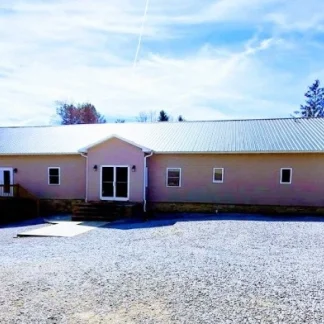Volunteer Behavioral Health - Cumberland Mountain Mental Health Center
Volunteer Behavioral Health - Cumberland Mountain Mental Health Center is locate...
Mission Teens - Crossville MBTC is a non-denominational Christian Discipleship ministry located in Crossville, TN. Mission Teens - Crossville MBTC has a training program divided up into four phases.
Mission Teens is a non-denominational Christian Discipleship ministry dedicated to helping people who struggle with life-controlling problems by ministering the Gospel of Jesus Christ to them. They believe that the Gospel should be free to all.
Almost all of their staff are graduates of the discipleship training program. They do not receive any salary, but work as missionaries, giving back their life to serve the Lord by reaching out to others. The Assistant Executive Directors at each center work directly with the Executive Director to train the staff, oversee the general condition of the buildings and raise the necessary support, as well as teach, counsel, etc.
Contact us for more information: (931) 484-9935

Connect with Mission Teens - Crossville MBTC by calling their admissions team directly.
(931) 484-9935 Website Get DirectionsGroup therapy is any therapeutic work that happens in a group (not one-on-one). There are a number of different group therapy modalities, including support groups, experiential therapy, psycho-education, and more. Group therapy involves treatment as well as processing interaction between group members.
Life skills trainings involve all the skills a person must have in order to function successfully in the world. These include time management, career guidance, money management, and effective communication. Truly successful addiction recovery is based on the ability to not only live substance-free, but to thrive. Life skills teaches the practical necessities of functioning in society, which sets clients up for success in life, and therefore sobriety.
Life skills trainings involve all the skills a person must have in order to function successfully in the world. These include time management, career guidance, money management, and effective communication. Truly successful addiction recovery is based on the ability to not only live substance-free, but to thrive. Life skills teaches the practical necessities of functioning in society, which sets clients up for success in life, and therefore sobriety.
Volunteer Behavioral Health - Cumberland Mountain Mental Health Center is locate...
Hilltoppers – Group Home is a private rehab located in Crossville, Tennessee. Hi...
Cumberland Heights, in Crossville, Tennessee, provides comprehensive, 12-step-fo...
Spero Health – Crossville is a private rehab located in Crossville, Tennessee. S...